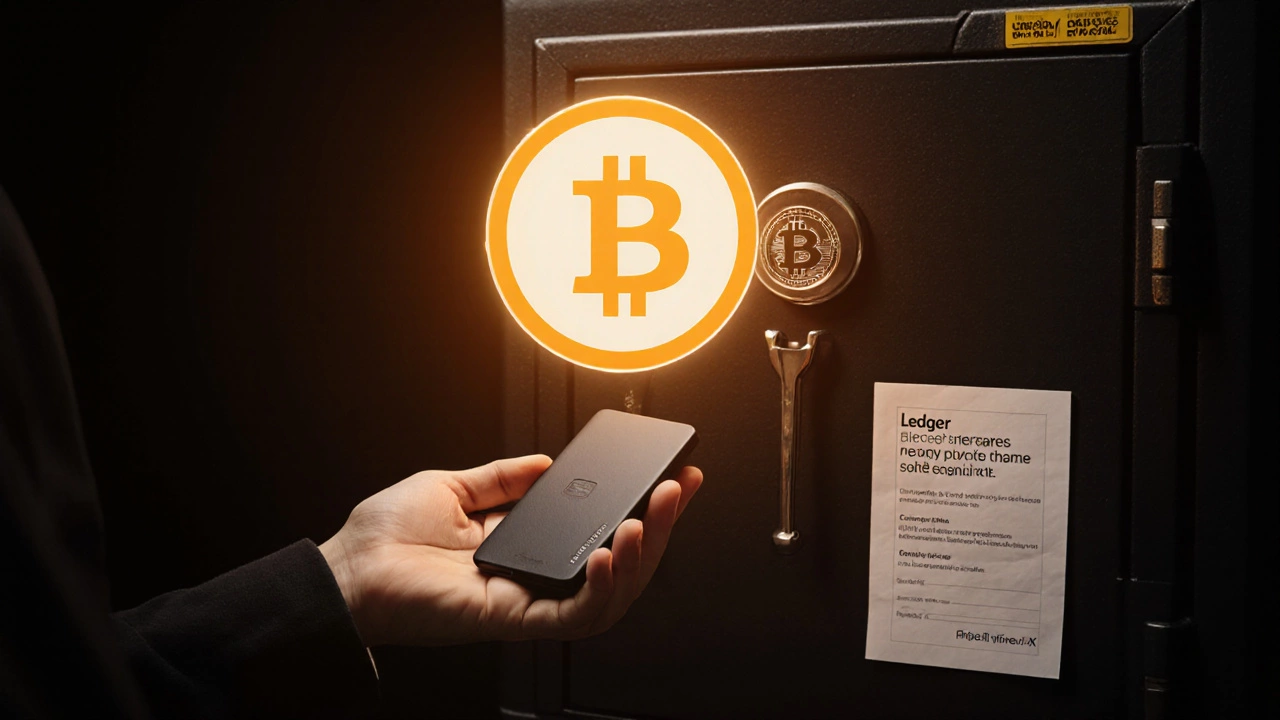Bitcoin after purchase: What to do next with your crypto
When you buy Bitcoin, a decentralized digital currency that operates without a central bank or single administrator. Also known as BTC, it’s not like cash you can just stash in a drawer—what you do after buying it makes all the difference in whether it grows, stays safe, or disappears. Too many people buy Bitcoin, see the price move, and then do nothing. That’s like buying a house and leaving the keys in the lock.
The real work starts once the transaction confirms. You need to move it out of the exchange where you bought it. Exchanges are convenient, but they’re also targets. If an exchange gets hacked, you could lose everything—even if you didn’t do anything wrong. That’s why Bitcoin wallet, a digital tool that stores your private keys and lets you send or receive Bitcoin. Also known as crypto wallet, it is the first real step after purchase. Choose between a hardware wallet like Ledger or Trezor for maximum security, or a trusted software wallet if you’re trading more often. Never leave large amounts on an exchange for more than a few days.
Security isn’t optional. You need to back up your recovery phrase—usually 12 or 24 words—and store it offline. Write it on paper, keep it in a fireproof safe, and never take a photo of it. If you lose that phrase, your Bitcoin is gone forever. No customer service can help you. No reset button exists. And if someone else gets it, they can drain your wallet in seconds. That’s why Bitcoin security, the practices and tools used to protect Bitcoin holdings from theft, loss, or unauthorized access isn’t just technical—it’s personal. Treat your private keys like the title to your home.
Then there’s the question of what to do with it. Are you holding long-term? Then you don’t need to check prices daily. Set up a simple rule—like only checking once a month—and stick to it. Chasing short-term moves leads to panic selling or FOMO buying. Are you planning to use Bitcoin for payments? Then you’ll need to understand how to convert it to local currency when needed. Some people even earn interest on Bitcoin through trusted lending platforms, but that adds risk. Know your goals before you act.
And don’t ignore taxes. In the UK, selling, trading, or spending Bitcoin can trigger capital gains tax. Keep records of every purchase, sale, and transfer. The HMRC isn’t asking nicely—they’re auditing. You don’t need to be an expert, but you do need to be organized.
What you’ll find below are real, no-fluff guides on exactly what comes after buying Bitcoin. From choosing the right wallet to avoiding scams, from tax tips to long-term strategies—every post here answers the questions people actually ask after they hit buy. No hype. No promises of instant riches. Just clear steps to protect what you’ve got and make smart moves going forward.
What Do I Do With Bitcoin Once I Buy It? A Practical Guide for Beginners

After buying Bitcoin, the real work begins. Learn how to store it safely, use it wisely, avoid scams, and handle taxes in Australia. No fluff-just what actually matters.
Read More >>